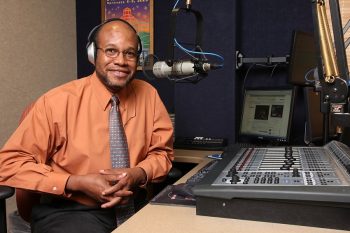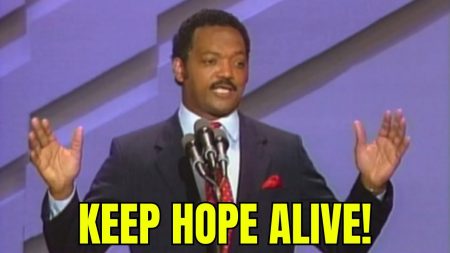Is This You?
 |
| Dennis Hill community activist and writer. Photo: Urban News |
by Dennis Hill
During the 1950s-60s-70s, Asheville was a good place to learn about racism. Until the mid 1990s, the black/white racial percentage approximated the American paradigm of roughly 75%/25%. Jim Crow originated as a 19th century minstrel routine that turned into a pejorative, belittling epithet for blacks. It is also a term used as a general reference to any discriminatory laws which separated blacks from whites. Its genesis and survival were in the south and it was a tool to keep blacks fearful of white wrath. Its calling cards were terror, hangings, and lynchings done under the cloak of darkness or a Ku Klux Klan hood.
My mother and father,
neither of whom was an Asheville native, were reared during the
Depression in Jim Crow South Carolina and Virginia, respectively. They
gave my brother and me a good old-school upbringing that provided many
opportunities with an emphasis on decorum, social skills, travel, and a
good education. As a small boy, I recall my dad telling us that blacks
were not to “get out of their place,” meaning maintaining a place of
subservience to whites. It was a warning that you were under scrutiny
and as a minority your attitudes, remarks, behavior, even whistling —
ANYTHING that whites didn’t like about you could get you in trouble.
My mom would tell me to “keep yourself in the clear,” meaning to always
be where someone could vouch for you lest you be accused by a white
person of some culpable offense. Black justice through white
jurisprudence was elusive then as it is now, as we watch hundreds of
blacks being released after wrongful convictions and lengthy
incarcerations.
I remember growing up in Shiloh and caddying at Biltmore Forest Country
Club in the 1960s. Here I observed race distinctions in a context of
wealth and privilege. I saw an ugly facet of racism, too, as the black
caddy masters in their obsequious, servile manner, scurried as buffoons
in an effort to curry the favor of the members. Many of the caddies
waiting to “go out” (to be hired to caddy) would look disgustedly and
resentfully at this charade and mutter to the other caddies, “Toms,”
meaning Uncle Toms.
Given the times, I now see that the caddy masters were doing what they
had to do to survive. In Shiloh we lived on and went to school on dusty
gravel roads. There were open sewers in the community that would be
left unrepaired for months. At Shiloh School, the books were always
“hand me downs” that had already served their usefulness at the white
schools. They would have the names of the other students who used the
books previously still written in the front cover of the text. Since
Shiloh was the only black county grammar school, black students from
Fletcher, Arden, Weaverville, and Burnsville made up the student body.
Forced busing at the rear of the municipal bus was mandated. The Plaza
Theatre, now Pack Place, had colored and white entrances. Public
restroom facilities, like the one recently unearthed on Pack Square,
were segregated. The other theatre, The Imperial, after a long
experience with total segregation, closed soon after integration.
Perhaps one of the most memorable acts of racism was seeing white men
call your father “boy” or “uncle” — a perniciously indignant exchange
for the young father to endure and for his young child to witness. On a
brighter note All Souls Episcopal Church sponsored a summer program in
1968 that provided cultural enlightenment, swimming, and other
activities from Shiloh and Biltmore Village when residents occupied the
houses that are now businesses in the village. The Asheville Optimist
Club also sponsored a drill team during this time to foster teamwork
and discipline in its young male participants.
The late 1960s and early 1970s were a time when racial and sexual
equality and civil rights were at the forefront of current affairs. One
unforgettably egregious event occurred in 1970, when I was given a job
at the old American Enka plant. The white male who was instructed to
teach me refused to teach me. I later learned that he did not want me
to know more than he did.
This was to be the first of many encounters with insecurity and
provided an answer to my mother’s advice, “don’t let them know that you
are smart.” I also had heard my grandmother, who on a domestic’s wages
was able to live a solidly middle-class lifestyle, explain her
employer’s dropping her off near her house rather than at her house.
“You can’t let them see what you’ve got,” she said, because she knew
that if her employer saw how prudent she was with her domestic’s wages
they would take them away saying, “We’re paying you too much.”
Another event I experienced here was school integration, when the name
of the game was “us” and “them” – except it was no game. On the first
day, we were greeted with “n*****s go home,” written on the sidewalks,
walls, and bathroom walls as we disembarked the school bus. We, as the
integrating student body, were referred to begrudgingly as “you
people.” The principal had such revulsion to integration that he died
during the second year. The guidance counselor told black children that
they weren’t college material. We found white students, the ones who
would have anything to do with us at all, to be arrogant, conceited,
and aloof, imposing an assumed or understood superiority over us. At
thirteen years old, this debacle led to a long-standing deficit in
academic self-confidence, which I’ve now overcome. I can only wonder
how many others were affected similarly.
In 1971, I went to Tuskegee Institute to regain my equilibrium. During
this time Tuskegee was teaching transition and assimilation into
society as MINORITIES. As Americans of African descent, we learned, we
should remain cognizant of being minorities because we are outnumbered
demographically, and the bearing and decorum we should exhibit is
different from the majority. At Tuskegee they taught that a racist does
two things to you: 1) He stereotypes you. 2) He oppresses you. If he
can stereotype you, he can oppress you. We were reminded that our
responsibility to the institution of racism was to: 1) Exceed
expectations. 2) Defy stereotypes.
Many have heard or read Condoleezza Rice’s saying that she has to be
better, because the expectation is higher. This is what she means. My
student days coincided with the time when the Tuskegee Study was
adjudicated. The Study was one of the most reprehensible illustrations
of white insecurity in history: thousands of uneducated, poor black men
with syphilis were, under the guise of science, were given placebos or
left untreated. The Department of Health, now the Communicable Disease
control Center (CDC), conducted the tests.
During the Vietnam War, my days at Tuskegee were cut short, and to
avoid the draft I joined the Air Force. One salient memory from this
experience is having an Iowan as a roommate in England in 1973. He told
me he was “going to write his parents and tell them that black people
were nothing like they said they were.”
Centuries and generations of
maladaptive and dysfunctional teaching and the disallowance of using
objective criteria and faculties to assess people have left racist
ideals pummeled internally into the psyches of many of the majority.
Many of the perpetrators and disseminators of these innuendoes have
been enlightened pragmatically or are deceased. Unfortunately, many of
the trainees are still alive. Is this you?
I have attended Building Bridges, the local dialogue on race, even
facilitating once. I was appalled at hearing many of the
European-American women in attendance complaining of their men
exhibiting many of the same supercilious, aloof, egotistical behavior I
had observed. Considering this, I’ve come to an irrefutable conclusion:
The source of sexism and racism is the same — the insecure
European-American male. Is this you?
In my personal dealings with him I have learned to temper my
assertiveness, lest it come out as a threat. Insecurity is a feeling
borne of guilt and fear. The insecure entity has a subliminal guilt
over past occurrences — in this case slavery and historical oppression
of blacks and women. He also has a subliminal fear of reprisals that
may happen as a result of past occurrences. Is this you?
He knows who he is and his insecurity can be elicited by saying
something positive about anything he feels threatened by: blacks, women
and gays (Jesse Helms). Interracial relationships with black men and
white women incite a primal, visceral angst in the insecure that is
obviously difficult to quell or coexist with. He’s the person who when
asked would he vote for Barack Obama will reply, “No we’re not ready
for that.” His insecurity can be provoked by calling him the “n” word.
Is this you?
The latter lesson I learned empirically when I lived in Chicago. With
my light skin I would go to bars where there was a high probability of
hearing the “n” word. I’d always listen to the context it was used in
when I heard it. Surprisingly, instead of its being used contemptuously
as a noun to denigrate blacks, it was used as an adjective to describe
something despicable or undesirable. Armed with this response, I began
calling them the “N” word. Their response was an arousal of embarrassed
anger that provoked malevolence on a scale I never expected. I feel
confident that it’s because I’m 6’6” that I never had a physical
altercation as a result of my “experiments.”
Gentlemen, I have no hard feelings toward you because, simple knowledge
of this character flaw will cause you to change it. If you can relate
to anything previously mentioned, for all our sake, make an effort to
improve as it will improve your family and social dynamics. America is
in a unique international situation in that after the abolition of 300
years of slavery ancestors of the formerly enslaved coexist with
ancestors of former slave-owners.
With that come unique adaptations that have to be made to assure an
amicable coexistence. We may have arrived on different ships but we’re
all in the same boat now. Don’t allow the truth to make you bitter,
allow it to make you better.
Dennis Hill was raised in Asheville Shiloh community, and attended both
public and private schools. He attended Tuskegee Institute and short of
graduation was drafted into the U.S. Armed Forces where he served
actively for five years. Presently, Mr. Hill is a student at UNC-A
Health and Wellness Curriculum. He is also an avid writer, history
enthusiast, and community activist. If you would like to contact Mr.
Hill, email him at: [email protected].







